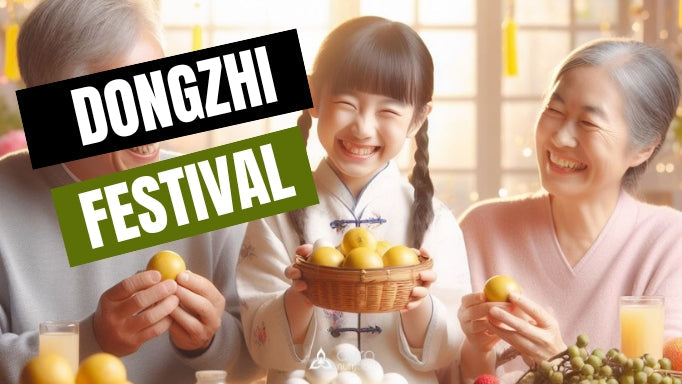
Dongzhi, recognised as the Winter Solstice Festival, boasts a profound legacy rooted in Chinese history spanning over 2,000 years. This festival, observed around December 21st or 22nd, aligns with the shortest day and longest night in the Northern Hemisphere, tracing its origins back to ancient China's reverence for the balance between yin and yang in life.

The Symbolism of Dongzhi
Harbinger of Yin and Yang
Dongzhi encapsulates the essence of Chinese philosophy, embodying the delicate equilibrium between light and darkness, positive and negative forces. Occurring on the longest night, Dongzhi signifies the triumph of yang (light) over yin (darkness), heralding the return of longer days and the gradual increase of daylight.

Embracing Family Ties and Unity
Dongzhi serves as a cherished occasion for families to gather, celebrating the warmth of togetherness. It provides a moment to express gratitude for the past year and anticipate the brighter days ahead, emphasising the importance of family unity and sharing warmth and love during the winter season.

Customary Traditions:
Tangyuan - A Traditional Delicacy
Tangyuan, round glutinous rice balls filled with sweet or savoury fillings, take centre stage as a traditional Dongzhi delicacy. Symbolising family reunion and unity, the making and enjoyment of tangyuan reinforce the spirit of togetherness during the festival.

Ancestral Heritage
Dongzhi is a poignant time for paying homage to ancestors. Families embark on visits to ancestral graves, offering prayers and symbolic tributes, bringing a connection with their roots and acknowledging the significance of family heritage.

Unveiling the Purpose of the Dongzhi Celebration
Aligning with Nature's Rhythms
Dongzhi encourages individuals to synchronise with the natural cycles of the Earth. By commemorating the Winter Solstice, communities forge a deeper connection with the changing seasons and the rhythmic flow of nature.

Cultural Legacy and Identity
The Dongzhi Festival is an integral facet of Chinese cultural heritage, serving as a testament to the rich history and traditions passed down through generations. Celebrating Dongzhi becomes a means to preserve and transmit these cultural practices to future generations.

Summary
The Dongzhi Festival emerges as a distinctive celebration, blending cultural and traditional elements that highlight family, unity, and the cyclical nature of life. As the longest night gives way, Dongzhi prompts a reflection on the warmth of familial bonds and an optimistic anticipation of brighter days ahead. Whether through the crafting of tangyuan or the reverence for ancestral roots, Dongzhi intricately weaves the past, present, and future into a tapestry of cultural richness and significance.
